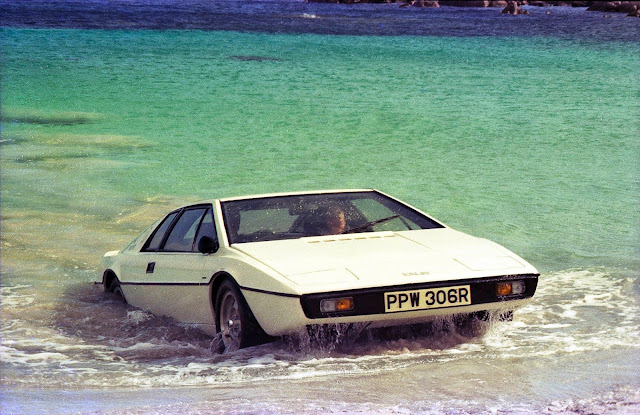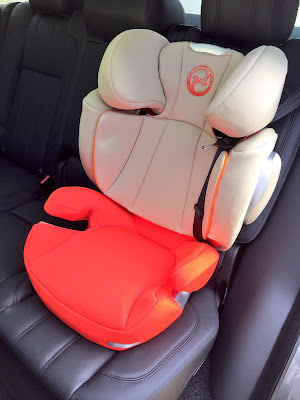GUEST BLOG: Oh-La-La, why are the Gendarmerie tugging us?! Know your quirky French driving laws?

It's Summer and the French driving holiday is all systems allez, here in Blighty.
But do you know the many quirky French driving laws?
NON?
Then this vacation might cost you a to more than you think, as this guest blog by our pals at AlcoSense breathalysers inform us, having conducted a OnePoll survey between 10-24 July 2018.
Ignorance highlights!
* Just 26% say hi-viz jackets required
* Only 1 in 7 know about headlamp deflectors
* 76% don’t mention need to carry breathalyser
We may make around 12 million trips to France each year but UK motorists are surprisingly ignorant of French driving laws, new research has found.
When asked to name the items you are required to carry inside your car, over half of drivers polled (56%) couldn’t think of ANY – despite having driven to Europe recently.
Only a quarter (26%) mentioned you have to carry a high viz jacket for each occupant of the car. A third (34%) were aware of the requirement for a warning triangle, but just 24% mentioned the need to carry an alcohol breathalyser. The figure for spare bulbs was a mere 15%.
The poll by AlcoSense breathalysers found drivers were just as ignorant when it comes to what a UK-registered car must have on its exterior.
Three fifths (60%) didn’t know at all. Only a third (33%) mentioned the need for a GB sticker (or GB symbol within the number-plate), and just 14% thought of headlamp beam deflectors to avoid dazzling oncoming traffic.
When specifically asked if a breathalyser must be carried in the car, less than half (48%) said yes.
When asked to name the items you are required to carry inside your car, over half of drivers polled (56%) couldn’t think of ANY – despite having driven to Europe recently.
Only a quarter (26%) mentioned you have to carry a high viz jacket for each occupant of the car. A third (34%) were aware of the requirement for a warning triangle, but just 24% mentioned the need to carry an alcohol breathalyser. The figure for spare bulbs was a mere 15%.
The poll by AlcoSense breathalysers found drivers were just as ignorant when it comes to what a UK-registered car must have on its exterior.
Three fifths (60%) didn’t know at all. Only a third (33%) mentioned the need for a GB sticker (or GB symbol within the number-plate), and just 14% thought of headlamp beam deflectors to avoid dazzling oncoming traffic.
When specifically asked if a breathalyser must be carried in the car, less than half (48%) said yes.
When told this is mandatory under French law, only 45% thought it needed to meet any criteria at all. Just 10% were able to state that it has to be an approved type: NF-approved (the French version of the British Standard Kite Mark).
Unsurprisingly, only a third carried a NF-approved breathalyser in their car the last time they drove in France.
“British drivers are risking the safety of themselves and other road users by not carrying the correct equipment, let alone the hefty fines that are imposed for not complying with French law,” comments Hunter Abbott, MD of AlcoSense.
“We only polled motorists who had driven their own car to Europe in the past two years, so we were shocked by the general lack of awareness”.
British drivers are no better informed when it comes to required documentation. Only 42% believed you had to carry proof of ownership (V5/logbook).
Just 45% were aware of the need to have your MOT certificate (if the car is over three years old) - with a similar figure (44%) for insurance documents.
Less than a fifth of respondents (17%) were able to correctly state the drink drive limit in France – which is 25 micrograms of alcohol per 100 mL of breath.
And only the same number (17%) were aware that the limit is lower if you passed your test less than three years ago (10 micrograms of alcohol per 100mL of breath).
Respondents were also asked whether a number of statements were correct. Just a fifth (19%) agreed that you cannot listen to excessively loud music when driving, and only half thought that you cannot eat or apply make up – but none of these acts are permitted on French roads.
Nearly a third (31%) agreed that you can use a hands-free headset. In fact, the use of all headsets and headphones is banned.
And three quarters of the sample were unaware that, if you require glasses for driving, you must also carry a spare pair.
Low awareness of emission zones
Some French cities such as Paris, Lyon and Grenoble are designated low emission zones, where the most polluting vehicles are either banned or charged an access fee.
Only a quarter of British motorists (27%) thought that specific action was required when driving in these cities.
But, when even those drivers were asked what that action was, two-thirds didn’t have a clue. Just 28% thought some sort of ‘sticker’ was needed.
French law states that a clean air sticker, called a Crit’Air vignette, must be displayed to identify what emissions your vehicle produces. They cost about €3 – but failure to have one on your windscreen could result in a fine of €68.
AlcoSense polled 750 UK motorists who had driven to Europe in their own car in the past two years.
And only the same number (17%) were aware that the limit is lower if you passed your test less than three years ago (10 micrograms of alcohol per 100mL of breath).
Respondents were also asked whether a number of statements were correct. Just a fifth (19%) agreed that you cannot listen to excessively loud music when driving, and only half thought that you cannot eat or apply make up – but none of these acts are permitted on French roads.
Nearly a third (31%) agreed that you can use a hands-free headset. In fact, the use of all headsets and headphones is banned.
And three quarters of the sample were unaware that, if you require glasses for driving, you must also carry a spare pair.
Low awareness of emission zones
Some French cities such as Paris, Lyon and Grenoble are designated low emission zones, where the most polluting vehicles are either banned or charged an access fee.
Only a quarter of British motorists (27%) thought that specific action was required when driving in these cities.
But, when even those drivers were asked what that action was, two-thirds didn’t have a clue. Just 28% thought some sort of ‘sticker’ was needed.
French law states that a clean air sticker, called a Crit’Air vignette, must be displayed to identify what emissions your vehicle produces. They cost about €3 – but failure to have one on your windscreen could result in a fine of €68.
AlcoSense polled 750 UK motorists who had driven to Europe in their own car in the past two years.



Comments
Post a Comment